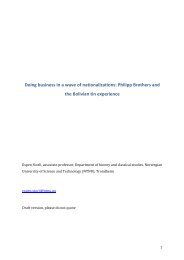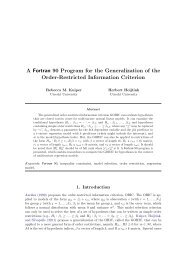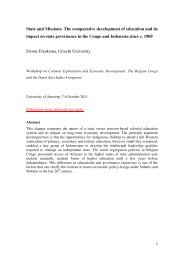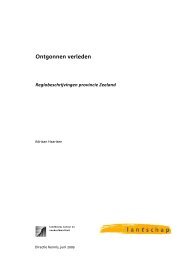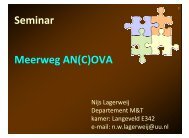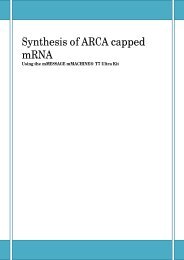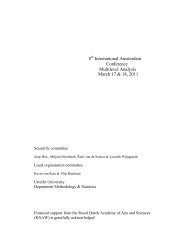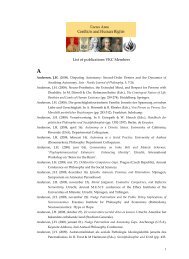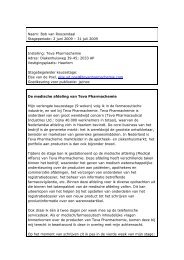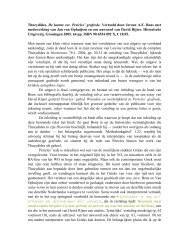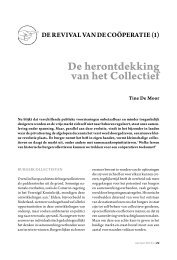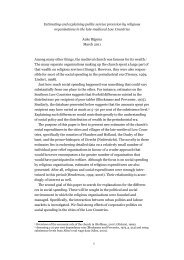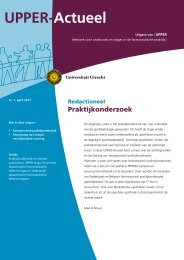New Approaches to Medieval Communication?1
New Approaches to Medieval Communication?1
New Approaches to Medieval Communication?1
You also want an ePaper? Increase the reach of your titles
YUMPU automatically turns print PDFs into web optimized ePapers that Google loves.
26 MARCO MOSTERTtur’, the culture of the written word, one finds used as a synonym of‘Schriftlichkeit’, although sometimes with a certain emphasis on the productsof writing. 52Of the German adjectives applied <strong>to</strong> ‘Schriftlichkeit’, undoubtedly‘pragmatisch’ has been the most useful. Used by Brigitte Schlieben-Lange in1979, 53 ‘pragmatische Schriftlichkeit’ was taken up in Münster. There, in 1986,the German research project 231 (“Sonderforschungsbereich 231") started withthe aim of studying “all forms of literacy which directly serve functional actions,or which were meant <strong>to</strong> teach human actions and behaviour by makingavailable knowledge”. 54 Such forms of writing were deemed ‘pragmatisch’.Written texts were studied which were demanded by the practice of daily life(‘Lebenspraxis’), such as charters and statutes, but also, in the case of theliterary elites, encyclopedias or collections of learned law. The Münster projectends in 1999. In the fifteen years of its existence the concept of ‘pragmatischeSchriftlichkeit’ has exerted a profound influence on German scholarship. 55Recently, Richard Britnell, of the University of Durham, edited a volume onPragmatic Literacy East and West, 1200-1300, in which he expresses his indebtednessfor the term <strong>to</strong> Thomas Behrmann, a representative of the Münsterschool: ‘pragmatic literacy’, according <strong>to</strong> Britnell, “is broader in scope than‘official literacy’ or ‘administrative literacy’, since it includes the use of writingfor practical purposes other than law and administration. It has fewer ambiguitiesthan ‘practical literacy’, which would otherwise be the closest alternative”.56 The problem posed by the term is, that once the demands for writtentexts by the literate, mainly clerical elites are also <strong>to</strong> be studied under the headingof ‘pragmatische Schriftlichkeit’ (as has been done in several partial projectsof the Münster Sonderforschungsbereich), the boundaries with what onemight term ‘mandarin literacy’ become fluid. 57As ‘literacy’ is often opposed <strong>to</strong> ‘orality’ in English, so in German‘Schriftlichkeit’ is opposed <strong>to</strong> ‘Mündlichkeit’ or ‘Oralität’. 58 ‘Mündlichkeit’ isfirst used in 1979, in the title of a collection of essays on oral poetry, edited by52 Nos. 266 (EHLERS, 1989), 35 (BRANDT, 1993), 245 (RAIBLE, 1993), 955 (ed. ERFURT andGESSINGER, 1993) and 1140 (ed. SCHIEFFER, 1996).53No. 237 (SCHLIEBEN-LANGE, 1979).54No. 75, 24 (1990), p. 389.55See, e.g. Nos. 1165 (ed. KELLER and BUSCH, 1991) and 1138 (ed. KELLER, 1992).56No. 1137 (ed. BRITNELL, 1996), p. VII.57 See for an approximative distinction between pragmatic literacy and mandarin literacythe subjects of the titles listed in sections 13 and 11, with section 10 maintaining an uneasybalance between the two (cf. No. 1026 for one of the reasons).58 Seldom used: Nos. 571 (HOLTUS, 1989), 1150 and 1170 (both DILCHER, 1996).



